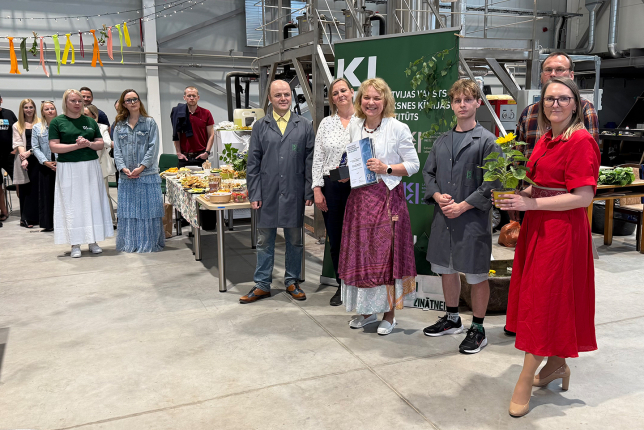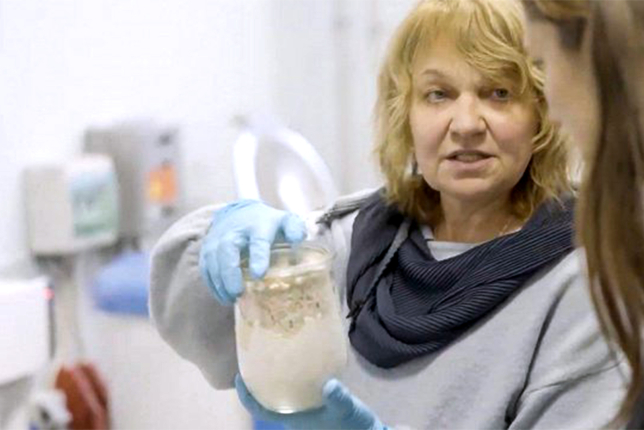Fungi Bringing Global Recognition to Latvian Scientists
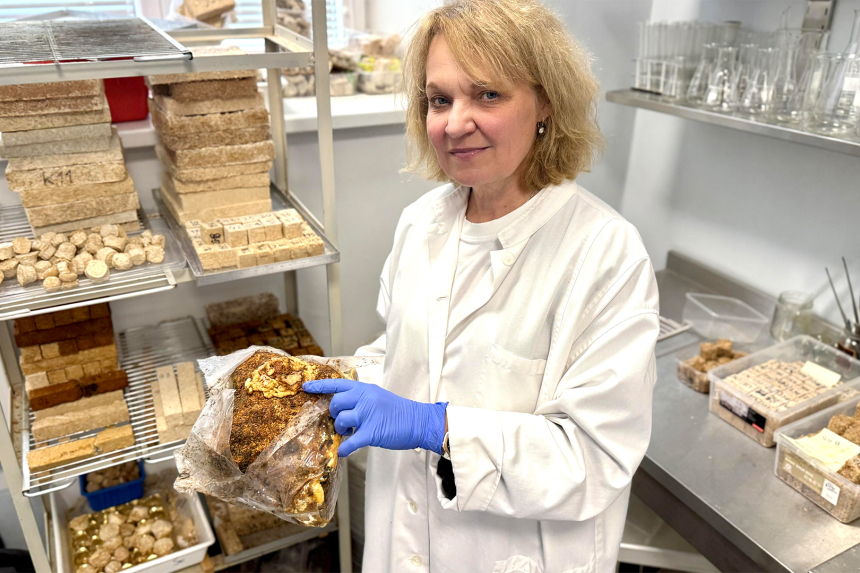
With the arrival of autumn, Latvian forests and parks reveal an increasingly frequent sight on fallen or damaged tree trunks – the colorful turkey tail (Trametes versicolor). This visually striking but inedible polypore fungus is known worldwide as one of the most extensively studied medicinal fungi. In Latvia, however, it has also become an inspiration for researchers at the Latvian State Institute of Wood Chemistry, who are developing innovative mycelium biocomposites – natural materials that can replace synthetic foams and plastics.
The story about this research and its achievements was recently published in Kas Jauns Avīze and on the news portal jauns.lv.
Living material with great potential
Our leading researcher at the Cellulose Laboratory, Dr. Ilze Irbe, explains:
“We are developing mycelium composites, which means we use living fungal mycelium. By cultivating and processing it, we obtain a material that can replace foam plastics. For example, there is potential to use it as insulation for packaging – and in the future even to grow furniture and design objects.”
In the laboratory, mycelium is first cultivated in flasks with a liquid medium and later transferred onto a substrate – wood shavings or hemp hurds. After a couple of weeks, it forms a mass resembling dough, which can then be shaped into almost any form – granules, boards, or even ready-made objects.
One major advantage: these biocomposites are fully biodegradable. Composting experiments have proven that mycelium granules decompose in soil within a few weeks, while enriching it with organic nutrients.

International recognition
This year, the mycelium composite material developed by our scientists won the prestigious WorldStar Winner international competition, which included 550 participants from 40 countries. It also received the Grand Prix award in the national contest Best Packaging in Latvia. Both recognitions highlighted the innovation’s potential and its environmental benefits.
“We are still at the beginning, but we already see that these materials have enormous potential for the future,” says Ilze Irbe.
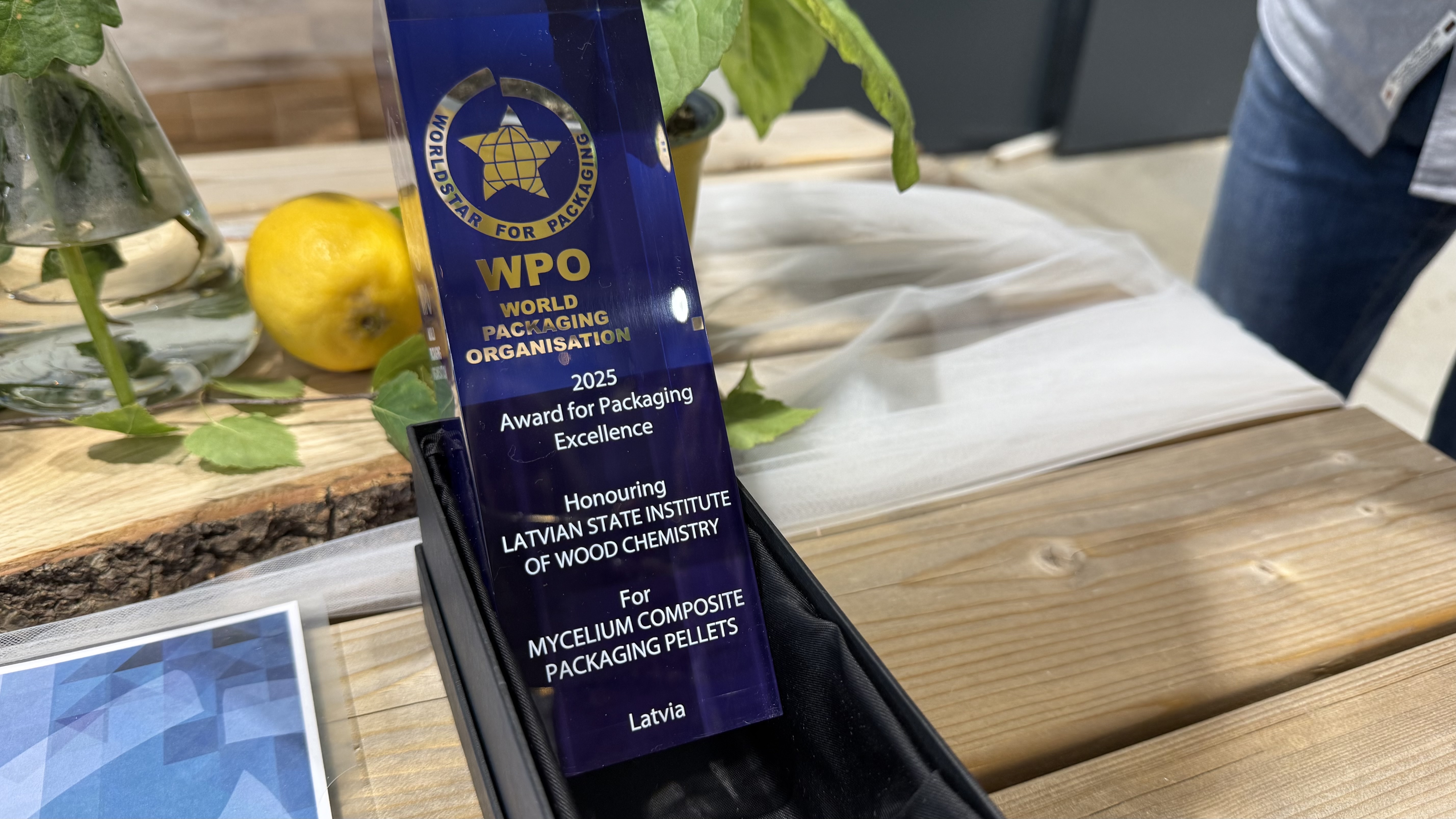
From idea to project
The research began in 2019 as voluntary work. The turkey tail fungus was already part of the institute’s collection, as it is commonly used in wood durability tests. By studying the literature, the scientists realized that the mycelium of this fungus grows quickly on different substrates and provides valuable properties to the resulting material. The promising results encouraged project applications and further research.
Today, the work continues within a project funded by the Latvian Council of Science: Innovative mycelium biocomposites (MB) from plant residual biomass with enhanced properties for sustainable solutions (No. lzp-2023/1-0633), which will run until the end of 2026.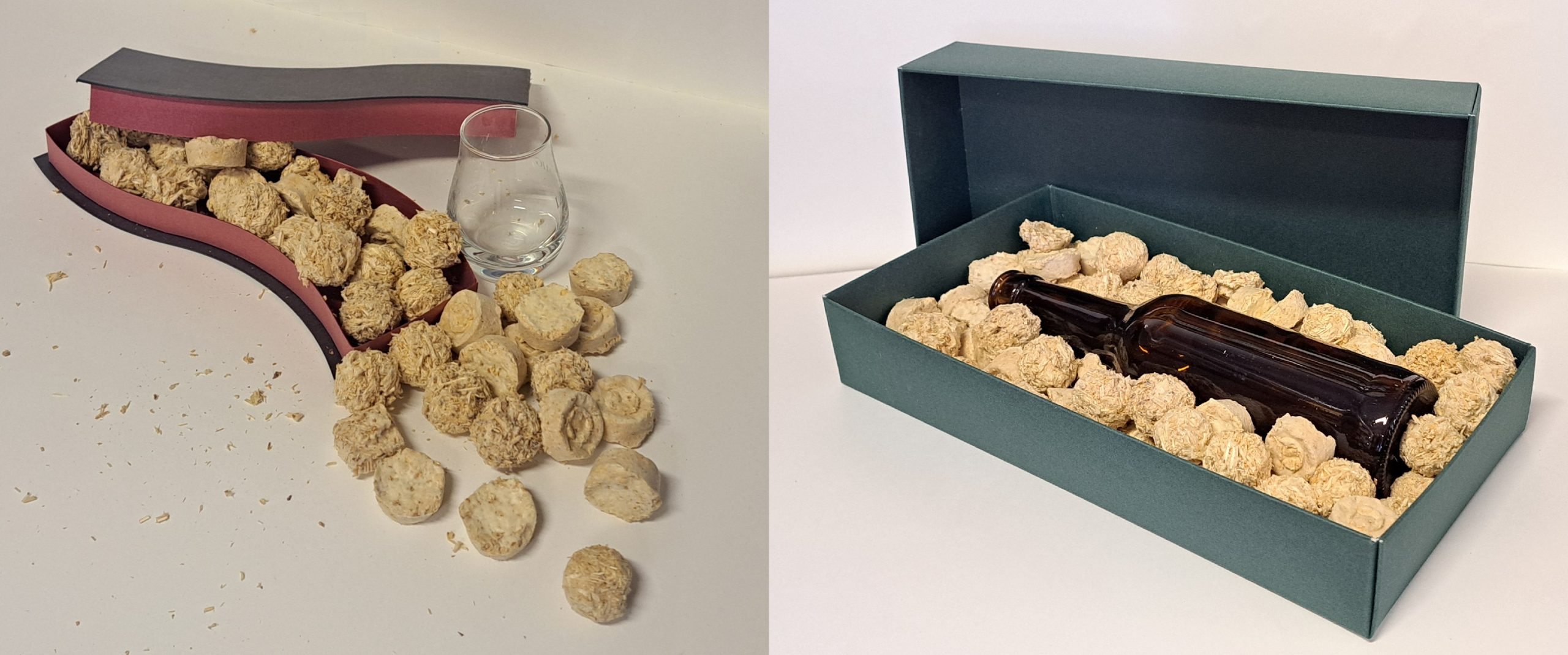
Future possibilities
At present, the research team is focusing on packaging granules. However, the potential applications are much broader – acoustic panels, furniture prototypes, pet coffins, and even “mushroom leather” for the fashion industry.
The scientists emphasize that they are not manufacturers but prototype developers and innovation drivers. Therefore, the Institute is open to cooperation with investors and companies, so that in the future mycelium biocomposites can become everyday products – environmentally friendly, safe, and competitive alternatives to synthetic materials.
“In the United States, the National Science Foundation already considers living materials as one of the four main research directions expected to grow rapidly in the future,” notes Ilze Irbe. “This means mycelium composites definitely have a future.”
